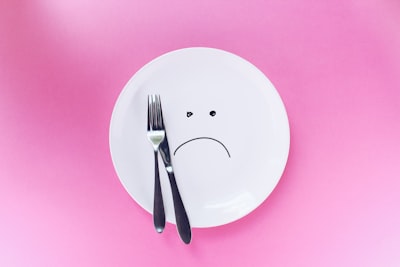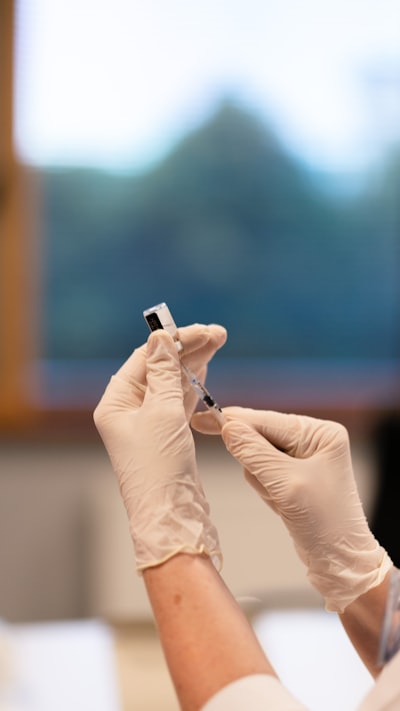Stress and Hair Thinning: Causes and Solutions
What is the link between stress and hair thinning?
Stress can disrupt the hair growth cycle and lead to hair thinning. When stress is experienced, the body produces more cortisol, which can negatively impact hair follicles and lead to hair loss. Managing stress through relaxation techniques and self-care can help prevent hair thinning in Boston.
Stress and hair thinning are two common problems that many people face, and they are often intertwined. When stress levels are high, hair thinning can occur, and it can be a cause of further stress and anxiety. In this blog, we will explore the causes of stress-induced hair thinning and discuss potential solutions and treatments.
Understanding Stress and Hair Thinning
Stress is a natural response of our body to various challenges and changes in our lives. While stress can be beneficial in small doses, chronic stress can have negative effects on our health, including hair thinning. Hair thinning refers to a reduction in hair density and volume, and it often results in a noticeable decrease in hair thickness. Both men and women of various ages can experience hair thinning, and recognizing the early signs of hair thinning is crucial for intervention.
What is Hair Thinning?
Hair thinning is a common condition that affects many individuals, and it can impact scalp coverage and overall hair health. It is important to differentiate between hair thinning and normal hair loss, as the former involves a gradual reduction in hair density and thickness. Symptoms of hair thinning may include increased hair shedding during daily activities, changes in hair texture and density, scalp visibility, and reduced hair coverage. Monitoring changes in hair volume and scalp appearance is crucial for identifying and addressing hair thinning.
How is Stress Linked to Hair Thinning?
The relationship between stress and hair thinning is multifaceted, and stress can disrupt the hair growth cycle, leading to thinning. Chronic stress can contribute to hormonal imbalances, affecting hair health, and psychological stress has been linked to hair follicle miniaturization. Additionally, stress-related inflammation may impact the hair follicle environment, further contributing to hair thinning and other related conditions such as arthritis. Understanding the science behind stress-induced hair thinning is essential for addressing and managing this condition.
The Science behind Stress-Induced Hair Thinning
The hair growth cycle plays a significant role in hair thinning, and stress can disrupt its natural progression. Understanding the hair growth cycle is crucial for addressing thinning and implementing effective solutions. The hair growth cycle encompasses active growth and resting phases, and it transitions through the anagen, catagen, and telogen stages. Each hair follicle operates independently within the growth cycle, and it determines the duration and quality of hair growth. During the anagen stage, the cells in the lower part of a hair follicle rapidly divide, forming new hair and elongating the hair shafts. A hair follicle can grow hair in the anagen stage for up to four years. Around 80% to 90% of your hair follicles are in the anagen stage at any given time.
Understanding the Hair Growth Cycle
The hair growth cycle involves periods of active growth and rest, transitioning through the anagen, catagen, and telogen stages. Understanding this cycle is crucial for addressing thinning. Each hair follicle operates independently within the growth cycle, determining the duration and quality of hair growth.
Impact of Stress on the Hair Growth Cycle - Dieting & Ozempic
Stress, especially chronic stress, can disrupt the natural progression of the hair growth cycle and lead to hair thinning. Chronic stress may cause hair follicles to enter a prolonged resting phase, resulting in hair thinning and shedding. Psychological stress can also cause hair follicles to prematurely shed, further contributing to thinning. The impact of stress on the hair growth cycle can vary among individuals, and stress-induced alterations in the hair growth cycle can lead to thinning.
Identifying Stress-Induced Hair Thinning
Identifying stress-induced hair thinning is crucial for early intervention and effective management. Paying attention to symptoms and changes in hair volume and scalp appearance can help identify hair thinning. Symptoms may include increased hair shedding during daily activities, changes in hair texture and density, scalp visibility, and reduced hair coverage. It is important to differentiate between hair thinning and normal hair shedding, as the former involves a gradual reduction in hair density and thickness.
Symptoms of Hair Thinning
Hair thinning may present as increased hair shedding during daily activities, noticeable changes in hair texture and density, scalp visibility, and reduced hair coverage. These symptoms can impact an individual's self-perception and psychological well-being, further emphasizing the importance of early identification and intervention. Monitoring changes in hair volume and scalp appearance is crucial for identifying and addressing hair thinning.
Differentiating between Hair Thinning and Normal Hair Loss
Understanding the distinction between hair thinning and normal hair shedding is crucial for accurate diagnosis and appropriate management. Normal hair shedding typically involves the loss of 50-100 strands of hair per day, according to the American Academy of Dermatology. But if you’re losing more than that, it could be a sign of a condition called telogen effluvium, or excessive hair shedding. Hair thinning encompasses a gradual reduction in hair density and thickness. Seeking professional guidance and medical advice from the American Academy of Dermatology is essential for distinguishing hair thinning from shedding and implementing effective solutions.
Causes of Stress-Induced Hair Thinning
Various physical and emotional stressors can cause hair thinning, and understanding these causes is key to addressing and managing stress-induced hair thinning.
Physical Stressors
Physical stress, such as surgery, illness, or trauma, can lead to hair thinning. High fever, sudden weight loss, and nutritional deficiencies are potential causes of hair thinning due to physical stress, and hair shedding and thinning are common side effects of telogen effluvium, a type of hair loss caused by physical stress. Psychological stress can also trigger physical stress, further contributing to hair thinning and hair loss. In some cases, crash diets, which are one of the most common causes of hair loss, can also lead to hair thinning and shedding (5).
Emotional Stressors
Emotional stress, such as anxiety, grief, or depression, can contribute to hair thinning and hair loss. The release of stress hormones during emotional stress can disrupt the hair growth cycle, leading to hair thinning. Chronic emotional stress may cause hair follicles to enter the resting stage, resulting in hair thinning and shedding. Managing emotional stress through relaxation techniques and therapy can help prevent stress-induced hair thinning, and adopting healthy habits and self-care practices can further mitigate its effects. Alopecia areata, a condition where the body's immune system attacks the hair follicles, can also be triggered by severe stress. This can result in hair loss.
Preventing and Managing Stress-Induced Hair Thinning
Preventing and managing stress-induced hair thinning involves implementing lifestyle changes, and nutritional tips, and seeking appropriate treatments and solutions.
Lifestyle Changes for Stress Management
Engaging in regular physical activity and exercise, adequate sleep, and stress-reducing activities are essential for balancing stress and preventing hair thinning. Implementing a healthy work-life balance, social support, and stress-relieving practices are key lifestyle changes for stress management and hair thinning prevention. Taking care of one's mental and emotional well-being is crucial in managing stress and reducing its impact on hair thinning.
Nutritional Tips for Healthy Hair
Consuming a balanced diet with essential nutrients, including protein and amino acids, iron, and vitamin D, is crucial for maintaining healthy hair and preventing hair thinning. Incorporating omega-3 fatty acids, zinc, and biotin-rich foods promotes hair growth and prevents hair thinning due to stress. Hydration, whole grains, and a variety of fruits and vegetables are also essential components of a hair-friendly nutritional regimen. Avoiding crash dieting and restrictive diets further supports healthy hair growth and mitigate the effects of stress-induced hair thinning.
Treatment Options for Stress-Induced Hair Thinning
Various treatment options are available for stress-induced hair thinning, including over-the-counter and medical treatments.
Over-the-Counter Treatments
Over-the-counter treatments can stimulate hair regrowth and counteract stress-induced hair thinning. Minoxidil, an FDA-approved over-the-counter treatment, has been shown to promote hair regrowth. Hair growth shampoos containing biotin, caffeine, and keratin are popular options for promoting hair thickness and strength. Natural hair growth supplements, scalp massages with essential oils, and nutritional supplements can also contribute to healthy hair growth and combat stress-induced hair thinning.
Medical Treatments
Medical treatments, such as prescription medications, platelet-rich plasma (PRP) therapy, and scalp injections, are available for stress-induced hair thinning. Prescription medications like finasteride and spironolactone have been shown to be effective in treating hair thinning and hair loss. Advanced dermatological procedures, such as microneedling and hair transplantation, offer medical solutions for stress-induced hair thinning. Close monitoring and guidance from healthcare providers are crucial when considering medical treatments for hair thinning.
Prognosis of Stress-Induced Hair Thinning
Understanding the causes and effects of stress-induced hair thinning can lead to informed decisions and proactive management strategies. With appropriate stress management and hair care, the prognosis of stress-induced hair thinning can involve substantial hair regrowth and recovery. Collaborating with healthcare professionals and specialists and embracing a holistic approach to stress management and hair health foster an optimistic prognosis for stress-induced hair thinning. Ongoing research and advancements in stress-induced hair thinning treatments provide hope for improved prognoses and outcomes. The study led by Dr. Ya-Chieh Hsu of Harvard University, supported in part by NIH's National Institute of Arthritis and Musculoskeletal and Skin Diseases (NIAMS), sheds light on the underlying mechanisms that link stress and hair loss, contributing to our understanding of stress-induced hair thinning.
Will My Hair Grow Back after Stress-Induced Hair Thinning?
With effective stress management and targeted treatments, many individuals experience significant hair regrowth after stress-induced hair thinning. Patience, consistent care, and adherence to personalized treatment recommendations are key factors in achieving hair regrowth post stress-induced hair thinning. Proactively addressing stress and implementing healthy lifestyle changes are essential for optimizing the potential of hair regrowth. Seeking professional guidance and support can provide reassurance and guidance throughout the hair regrowth process following stress-induced hair thinning. After the three- to six-month shedding period, you’ll notice new hair growth in your affected areas.
Can Stress-Induced Hair Thinning be Completely Prevented?
While it may not be entirely possible to prevent stress-induced hair thinning, managing stress levels and adopting healthy lifestyle changes can help minimize hair thinning concerns. A balanced diet, proper hair care regimen, and consulting healthcare providers for personalized solutions are crucial in addressing stress-induced hair thinning and preventing further hair loss. Incorporating stress management techniques, such as meditation and exercise, and seeking professional guidance are important steps in preventing stress-induced hair thinning.
Is there a Permanent Solution to Stress-Induced Hair Thinning?
Stress-induced hair thinning can be effectively managed and improved with stress reduction, a healthy hair care regimen, and medical treatments. While stress management and a healthy hair care regimen can lead to significant hair regrowth, medical treatments, and therapies offer targeted and advanced solutions for stress-induced hair thinning. Understanding the underlying causes of stress-induced hair thinning and implementing personalized stress reduction techniques are key factors in seeking and achieving long-term and permanent solutions.
Conclusion
To conclude, stress-induced hair thinning is a common issue that many people face due to the negative impact of stress on the hair growth cycle. It's important to identify the symptoms of hair thinning and differentiate it from normal hair loss. While stress cannot be completely avoided, managing stress through lifestyle changes and nutritional tips can help prevent and manage hair thinning. There are also various treatment options available, including over-the-counter treatments and medical interventions, which can aid in regrowth and improve the overall prognosis of stress-induced hair thinning. However, it's important to understand that individual results may vary, and there may not be a permanent solution for everyone. If you're experiencing hair thinning, consult a healthcare professional or a trichologist for personalized advice and guidance.









